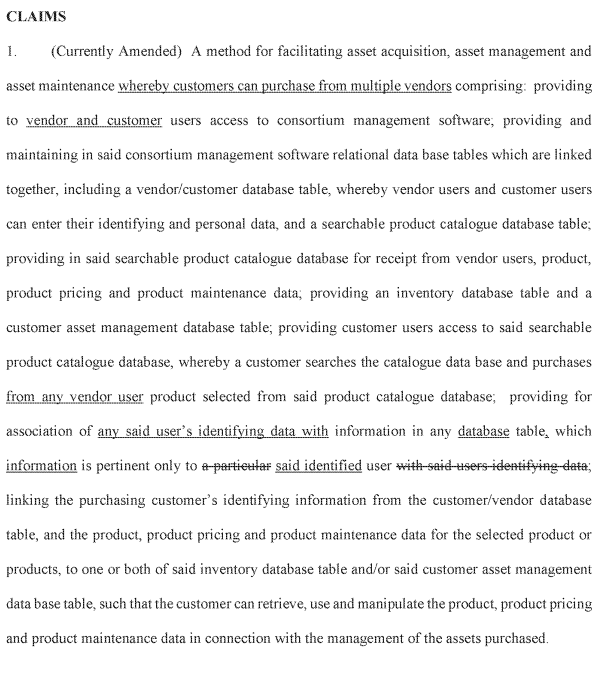Utility and Eligibility | Patently-O



by Dennis Crouch
In re Smith, 22-1301 (Fed. Cir. Sept 9, 2022) (nonprecedential).
Smith is a limited viewpoint affirming the USPTO’s refusal to problem Jason Smith’s patent on eligibility grounds. The creation is a software package system that enables shoppers to order property from many distributors. The Board turned down the claims as directed to the summary thought of “storage, business, and exhibit (e.g., retrieval) of facts, which has consistently been held . . . to represent an summary notion.” The Appellate panel then discovered Smith’s arguments to the contrary unpersuasive. In his 2011 post-Bilski report, Prof Risch wrote some about the overlap concerning utility and eligiblity and suggested merger of the two doctrines. “The cleanest take a look at would switch the present-day patentable-matter-subject take a look at entirely with eligibility utility.” Michael Risch, A Astonishingly Practical Need, 19 Geo. Mason L. Rev. 57 (2011). The problem for Smith nevertheless is that the courts have not recognized Prof. Risch’s tips.
Maybe the most appealing argument by Smith was his assertion that “[t]he commencing place for the Board’s evaluation of need to have been to decide whether the claims complied with the useful need.” The short goes on to argue that: “If it is practical, it is by legislation patent eligible.” On enchantment, the Federal Circuit noted initially that Smith’s argument is “without citation” and then located that it is also without the need of benefit. In particular, the court docket concluded that utility and eligibility are different and distinctive doctrines: “utility is not the test for patent eligibility.” The Supreme Court alluded to this distinction in its Myriad Genetics determination. Ass’n for Molecular Pathology v. Myriad Genetics, Inc., 569 U.S. 576, 591 (2013) (isolation of “important and valuable gene [is] not an act of invention”). Further more, utility is not a prong of the Alice/Mayo analysis.
For every Curiam Belief by Judges Lourie, Dyk, and Hughes
James Mitchell (Mitchell IP) represented Mr. Smith Sarah Craven (USPTO Associate Solicitor) was on the other side.
= = =









